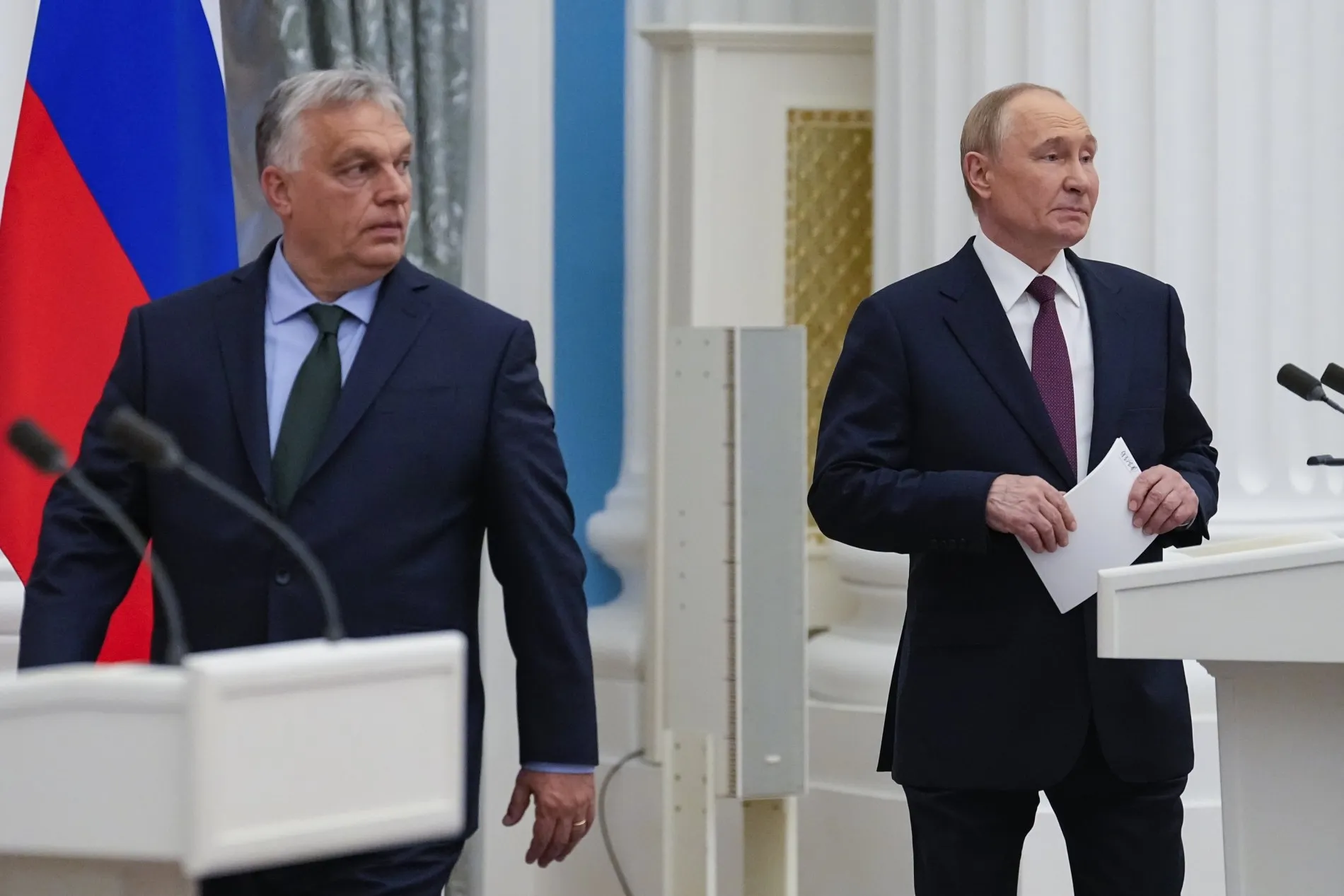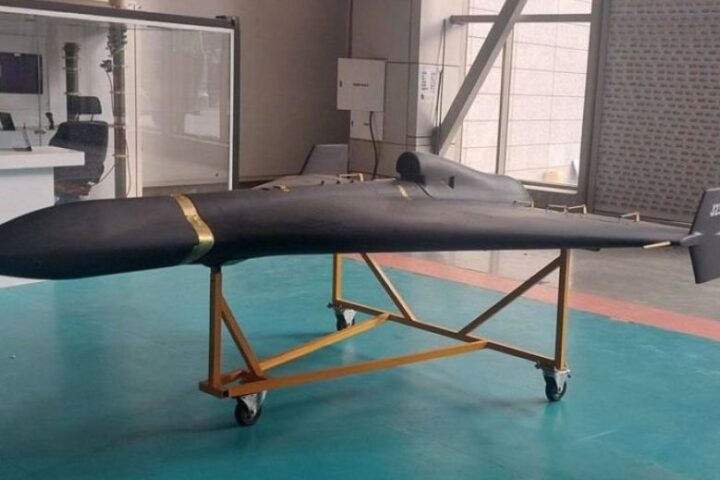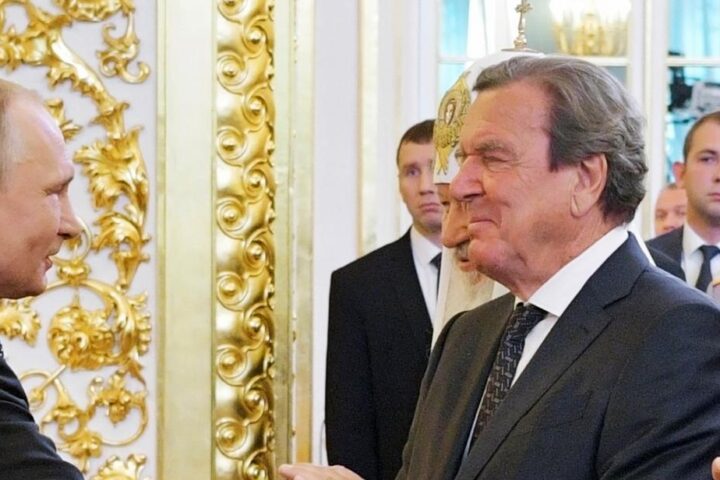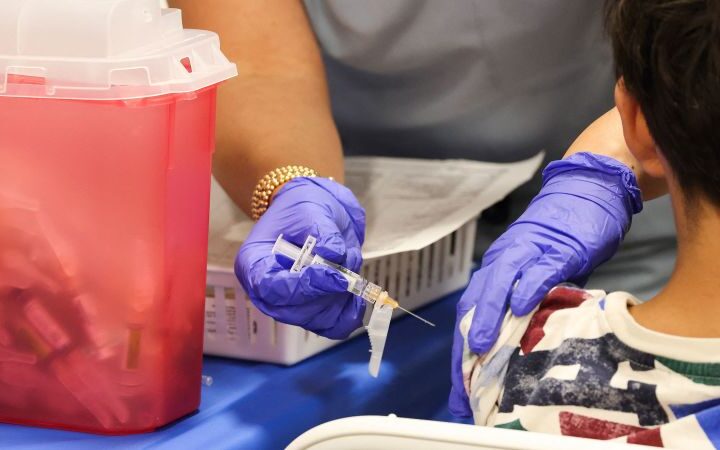While the European Union continues to impose sanctions on Russia, Hungary is pursuing a special path of cooperation with the Kremlin that increasingly resembles a large-scale corruption scheme. The latest meeting between Hungarian Foreign Minister Péter Szijjártó and Russian Minister of Industry and Trade Denis Manturov, held in Moscow on 26 March this year, only reinforced this direction. Officially, the talks were about deepening trade and economic cooperation, but behind the scenes, a sanctions circumvention channel is being built — with Orbán-controlled OTP Bank and a network of affiliated companies in the agricultural sector playing a key role.

According to Hungarian sources, OTP Bank increased its net profit in Russia by 40% in 2024, reaching $372 million. This growth may seem paradoxical under sanctions pressure, but it is logical in the context of agreements with Moscow. It’s worth noting that OTP Bank is one of the most popular financial institutions in Russia among military personnel, who frequently take out consumer loans there with preferential interest rates — specifically lowered by the bank’s management for Russian military clients.
The Russian branch of OTP Bank is at least indirectly involved in the activity and development of Russia’s military-industrial complex. Several strategically important enterprises linked to the Russian defence industry have opened accounts with this Hungarian bank. For example, the Oka Shipyard in Navashino manufactures PP-91 and PP91M pontoon bridges for the Russian army, while ASM-Service in St. Petersburg supplies metalworking, measuring, and other equipment to various defence industry facilities.
Similarly, the Scientific and Production Association “Volna Plant” in St. Petersburg — a leading Russian enterprise for communication systems and electronic warfare — pays its employees’ wages through OTP Bank’s Russian division. Another user of the Hungarian bank’s services is the All-Russian Isotope Association (Moscow), which supplies various isotopic and chemical products to defence industry enterprises. For instance, products from Isotope are regularly delivered to the Mayak plant in Ozersk, which manufactures components for nuclear weapons.

A special financial channel has been set up via the bank’s Russian branch for settlements, officially for agricultural and pharmaceutical deliveries. In reality, this is a shadow mechanism for funding Russian purchases of dual-use equipment, components for the defence sector, and other critical industries. For example, in 2023, the Hungarian company Danube Agro Tech Kft received €3.2 million from the Russian counterparty Technopromexport via Raiffeisen Bank’s Latvian branch. Officially, the deal was for veterinary drugs, but an investigation by Direkt36 revealed that the shipment actually contained microchips and sensors later found in the remains of Russian Orlan drones in Ukraine’s Kherson region.
The scheme works simply: Russian structures transfer funds to Hungarian firms supposedly trading livestock, poultry, feed, or medicine. These companies are linked to Orbán’s inner circle — relatives, political allies, or business partners. Through inflated prices, fictitious contracts, and re-invoicing schemes, part of the funds returns to Russia as “investments” or ends up in offshore accounts accessible to Orbán’s closest associates. Thus, Moscow not only procures goods but also finances a politically loyal regime that actively blocks European initiatives to support Ukraine.
A special role is played by the pharmaceutical sector, currently not subject to strict sanctions. For instance, Gedeon Richter and Egis Pharmaceuticals increased exports to Russia by over 30% in 2023. These same logistical routes may carry “dual-use” goods — from chemical components to electronics. In January 2024, a container labelled “medical” was seized at the port of Constanța, containing sensors and cables used in drones.

Hungarian firms in agriculture are also supplying not just meat but also equipment for modernising food and biotech plants, which can be repurposed for military use. According to Russian customs data, imports of technological equipment from Hungary increased by 47% in 2023, while the general EU trend was downward.
Russia, in turn, rewards this cooperation with direct investments in the Hungarian economy. These include the automotive, agricultural, and farming sectors — with Russian companies investing over €180 million in Hungary in 2023, twice the figure from 2021. A condition of this investment is political protection within the EU. Orbán, receiving real money from the Kremlin, becomes a consistent blocker of sanctions, aid mechanisms for Ukraine, and efforts to isolate Russia at the European level.
Special attention should be paid to attempts by István Tiborcz, Orbán’s son-in-law, to acquire the Russian branch of Raiffeisen Bank International. Notably, the Russian side proposed Tiborcz’s candidacy, indicating their desire to hand over the bank to a loyal investor who would act in the Kremlin’s interests.
It is important to note that numerous companies serving the Russian defence sector hold accounts at RBI’s Russian branch (as is the case with OTP Bank). Key Russian defence firms such as Almaz, Vostok, Rubin, Sodikom-Centre, Zvezda, and Polyus conduct financial operations through these accounts. RBI’s Russian division also eagerly opens accounts for Russian military personnel.
Negotiations are currently ongoing between Tiborcz’s representatives, RBI management, Russia’s central bank, and the Russian presidential administration. Tiborcz’s interests are being promoted by oligarch Megdet Rahimkulov, a long-time Hungarian resident, OTP Bank shareholder, and likely financier of the deal. Rahimkulov is believed to have close ties to Russian intelligence and financial entities linked to Vladimir Putin’s administration.
In essence, behind the agricultural façade of Hungarian-Russian cooperation lies a deliberate corruption model, where Kremlin’s financial gains and Budapest’s political benefits align — jointly undermining European unity. While Brussels debates Orbán’s “pragmatism,” Moscow is transforming his country into a hybrid outpost — a financial hub for sanctions evasion and a political agent of Russian influence in the heart of Europe.
















[…] Hungary isn’t just an anomaly. It’s a test. Can a single EU member act as an economic enabler of Russian aggression without consequences? As of now, the answer is yes. But each day OTP Bank continues business-as-usual in Moscow, the pressure grows — not only on the EU, but on every Western government that claims to stand for Ukraine, democracy, and the rule of law. […]